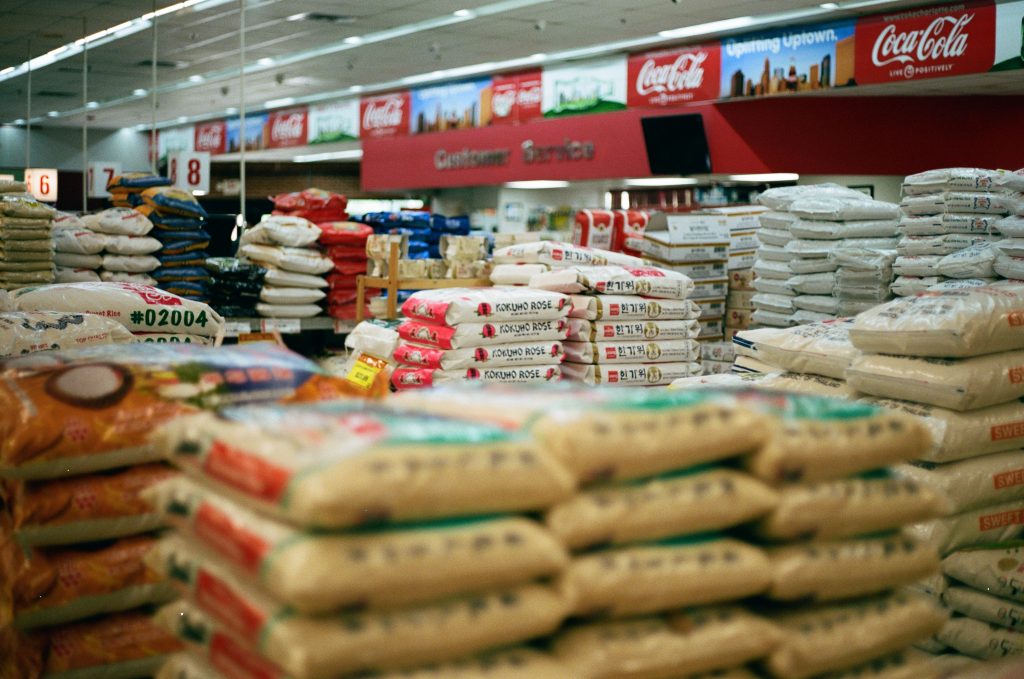The first week of February marked a distinct change in the shopping habits of consumers across Southeast Asia. Following the Lunar New Year, everyone was on high alert as Covid-19 spread beyond the Chinese borders. Here in Taiwan, the first cases led to school closures, increased doctors’ visits, and families preparing for the worst. In addition, masses of people were ‘panic-buying’ health care products and household supplies.
Shelves lay bare in the local supermarkets while people queued outside of pharmacies in the hopes of buying face masks in bulk. It’s vital to know what products actually offer protection from COVID-19 as online retailers are offering everything from toilet paper to health products. They have been key in helping to alleviate the crisis from in-store shops becoming depleted. For a few days, you could even find packages of toilet paper inside local claw machines as coveted prizes. Although your first instinct may be to jump in line, economists say this is exactly what people shouldn’t do. Hoarding behaviors actually have several negative impacts in the community and on the economy.
What Fuels Panic-Buying
Panic-buying is a phenomenon which occurs when people are facing a crisis. This behavior goes well beyond practical purchases, often keeping products from the people who need them the most. So what causes typically rational people to spend so irresponsibly? Simply stated, it is a fear response in the face of uncertainty.
People generally know which supplies are necessary when dealing with natural disasters such as tropical storms, water shortages, or blackouts. However, the long term effects of Covid-19 are still unclear. Scientists are unsure of just how fast and how far it will spread. Furthermore, no one can say with any certainty how long it will take to contain. The lack of control creates anxiety and fear, causing thousands to rush to their nearest retailers.
The Economic Disadvantages of Panic-Buying
These types of spending habits can actually make matters even worse. Healthcare professionals fear there will be a shortage of surgical masks due to people hoarding supplies. The U.S. government has suggested people stop buying surgical masks unless they are sick. In addition, Japanese leaders released public statements to assure people that there were enough supplies. Here in Taiwan, the government has rationed face masks for each person to only three masks per week.
Stockpiling also allows opportunists to take advantage of people through price-gouging. I’ve personally seen advertisers hawking boxes of face masks online for well over $100 USD. All you need to do is search for products online to witness it firsthand. Face masks that usually sell for $5.99 a box are now marked up 400% on Amazon. Moderators are doing their best to remove abusers, but it is impossible to stop them all.
Proper Emergency Preparation
This is hardly the first instance of panic-buying in recent history. From the Cuban missile crisis to Y2K, you likely knew someone who had made emergency preparations. Although you don’t need to stock up for a doomsday event, it is a good idea to be prepared for a crisis. Make an emergency plan with your family and buy the basic necessities you will need. This should equate to a few weeks of supplies, not enough to withstand nuclear fallout.
The best way to prepare is with quality sources of information. In the age of social media, hoaxes and rumors spread panic like wildfire. Don’t believe everything you read in your friends’ posts. Instead, look for credible sources sponsored by hospitals, universities or government agencies such as the CDC or WHO.
It’s important to recognize everyone’s anxiety over Covid-19, but panic-buying is not the answer. Ask yourself, what is the real source of your concerns and what you fear will happen? Take precautions to plan for an emergency, but there is no need to overact. If you feel extreme distress, consider speaking with a BetterHelp professional about your anxieties.
Read More
- Are You Prepared For An Emergency?
- 5 Easy Things You Can Do To Save An Emergency Fund
- Does Everyone Need and Emergency Fund?

Jenny Smedra is an avid world traveler, ESL teacher, former archaeologist, and freelance writer. Choosing a life abroad had strengthened her commitment to finding ways to bring people together across language and cultural barriers. While most of her time is dedicated to either working with children, she also enjoys good friends, good food, and new adventures.


